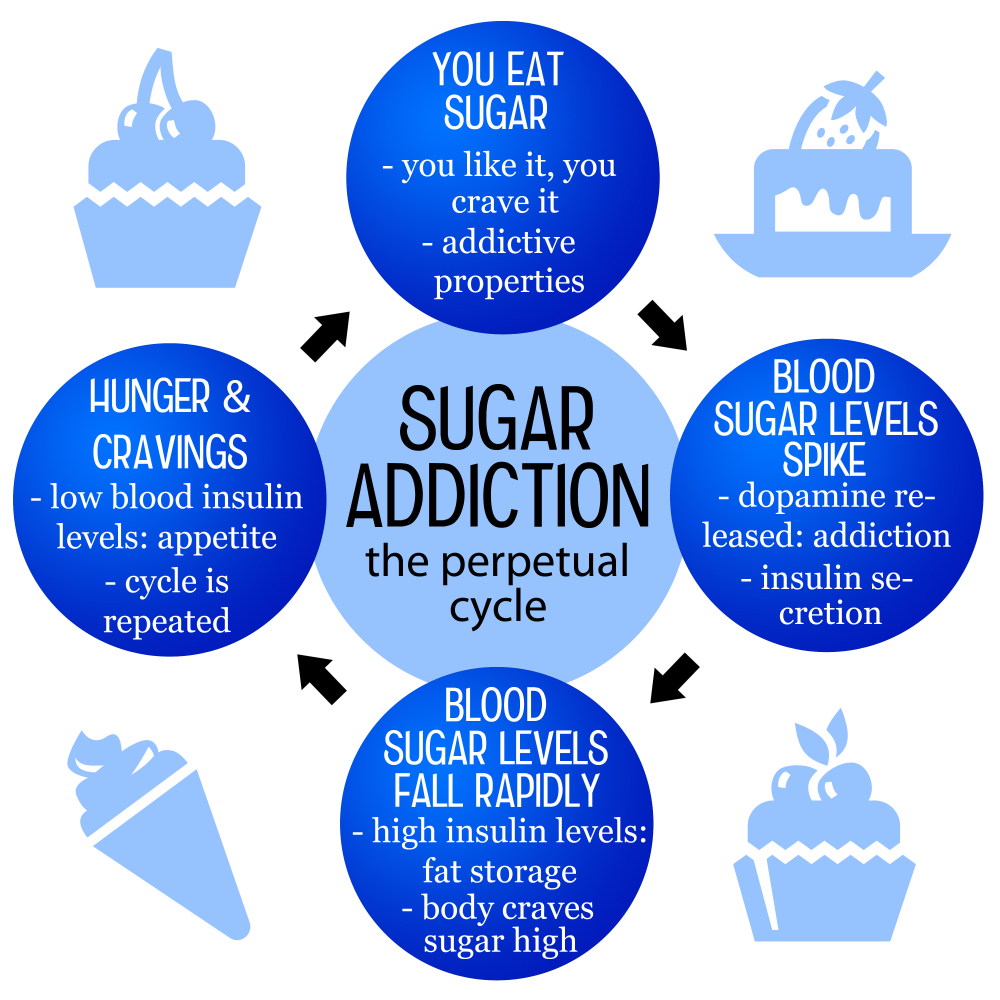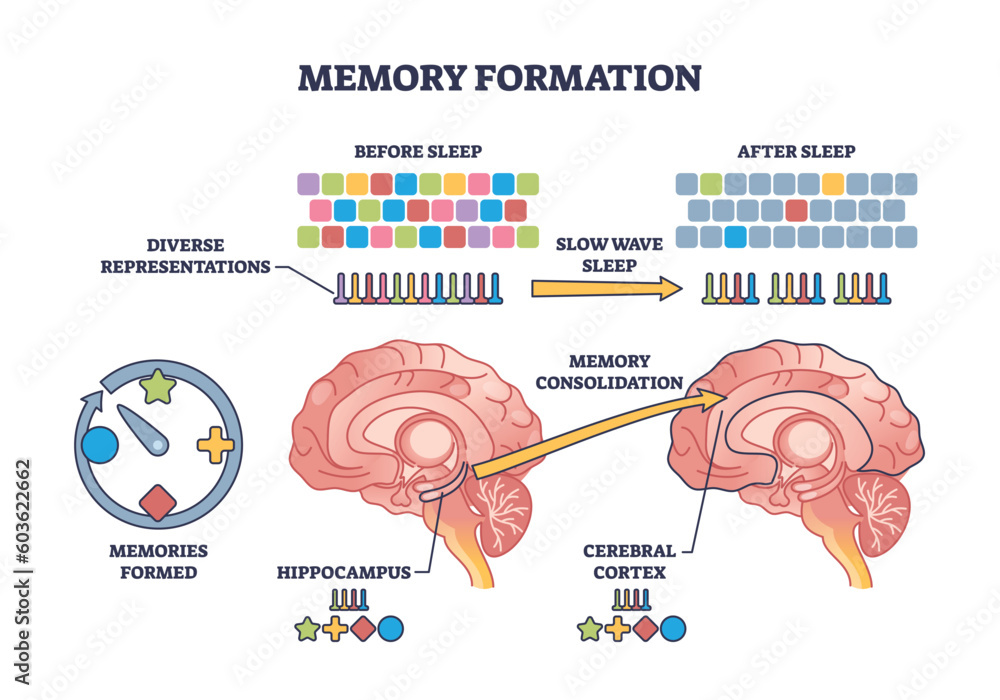**Is sugar addictive?** This question has captivated nutritionists and health enthusiasts alike, sparking ongoing debates about sugar cravings and the effects of sugar on our bodies. While sugar is not classified as an addictive substance like alcohol or nicotine, research indicates that high sugar intake can lead to compulsive eating behavior and withdrawal-like symptoms when we reduce it. The health effects of sugar are compounded by our reliance on ultra-processed foods, which are loaded with added sugars, unhealthy fats, and sodium, intensifying our desire for more. Understanding the nature of sugar addiction, its impacts on cravings, and the importance of moderation is crucial in navigating a diet that includes sweetness without the perilous pitfalls of excessive consumption.
Exploring the question of sugar’s addictive properties invites a discussion around its habitual consumption and psychological effects. Many individuals experience intense cravings for sugary foods, often fueled by the availability of not only sugar but also of other food additives that make these items particularly enticing. This dynamic resembles the patterns seen in substance use disorder, where compulsions can arise from environmental cues and emotional states. Ultimately, acknowledging the effects of sugar on our behavior and well-being—from the allure of sugary snacks to the potential for high sugar intake to influence our moods—allows for a more nuanced understanding of our relationship with sweetness in our diets.
Understanding Sugar Addiction
Sugar addiction has become a hot topic in nutritional discussions, with many researchers highlighting the complex relationship individuals have with sugary foods. While sugar does not meet the clinical criteria for addiction observed in substances like alcohol or nicotine, the compulsive behaviors stemming from high sugar consumption mimic those of addictive substances. This is primarily due to the impact sugar has on brain chemistry, causing the release of feel-good hormones like dopamine that drive cravings and compulsive eating behaviors.
Moreover, the prevalence of ultra-processed foods, laden with added sugars, unhealthy fats, and sodium, exacerbates the issue. These highly palatable foods are engineered to be appealing, making it challenging to consume them in moderation. When people attempt to cut back on sugar, they may experience withdrawal-like symptoms such as headaches, anxiety, and mood swings, indicating a psychological dependency on sugar-laden diets.
The Effects of High Sugar Intake
High sugar intake is linked to a plethora of health effects that warrant serious attention. Research indicates that excessive consumption can lead to obesity, increased risk of type 2 diabetes, and cardiovascular diseases. The average American’s intake of nearly 20 teaspoons of added sugar per day significantly exceeds the recommendations set by health organizations, which suggest no more than 9 teaspoons for men and 6 for women. This overconsumption can lead to chronic health issues, emphasizing the need for dietary awareness.
Additionally, high sugar consumption is associated with mood fluctuations and energy spikes followed by crashes, prompting further cravings for quick energy sources. Understanding these effects not only aids in managing cravings but also highlights the importance of maintaining balanced sugar levels. Cutting back on sugar doesn’t only reduce health risks but also stabilizes mood and enhances overall well-being.
How to Manage Sugar Cravings
Managing sugar cravings is crucial for maintaining a healthy diet and lifestyle. Many people experience intense desires for sweets, particularly when they suddenly cut them out completely. Nutritionists recommend a gradual reduction in sugar intake rather than going cold turkey, which can lead to heightened cravings and withdrawal symptoms. Instead, replacing sugary treats with healthier alternatives can help satisfy the sweet tooth without the excessive calories.
Incorporating whole foods rich in natural sugars, such as fruits and vegetables, can also effectively curb cravings. These foods provide essential nutrients while offering a healthier sweetness that won’t compromise overall dietary goals. Being mindful of eating habits and understanding triggers for sugar cravings can empower individuals to make better choices and reduce their dependence on added sugars.
The Psychological Perspective on Sugar Consumption
The psychological underpinnings of sugar consumption explain why many people struggle with sugar cravings and potential addiction. Sugar is often associated with comfort and indulgence, contributing to emotional eating habits where individuals turn to sweets to cope with stress, sadness, or boredom. Recognizing this connection is essential in addressing unhealthy eating patterns and fostering more positive coping mechanisms.
Additionally, the societal norms surrounding sugar consumption can reinforce this psychological bond. Events and gatherings often feature sugary treats, embedding sweets in social traditions, which can make abstaining from these foods challenging. Therefore, adopting new habits and focusing on balanced nutrition can help break the cycle of emotional dependency on sugar.
The Role of Sugar in Our Diet
Sugar does play a role in our diets, but moderation is essential for overall health. It is important to distinguish between naturally occurring sugars found in foods such as fruits and dairy products and added sugars found in processed foods. Natural sugars come with beneficial nutrients and fibers, making them a healthier choice in a balanced diet.
In contrast, excessive added sugar from processed foods contributes little nutritional value and can lead to health issues. The key is to enjoy the sweetness without overindulging, ensuring that sugar serves to enhance flavor rather than dominate one’s diet. This balanced approach allows individuals to enjoy the taste of sugar while minimizing health risks associated with high sugar intake.
Tips for Reducing Sugar in Your Diet
Reducing sugar intake can seem daunting, but there are practical strategies to make it manageable. Start by reading food labels to become aware of hidden sugars in products you consume regularly. Many seemingly healthy options, such as yogurt or salad dressings, often contain high amounts of added sugar. This awareness can help you make more informed food choices.
Another effective strategy is to gradually substitute sugary snacks with healthier options. For instance, replace candy bars with fruits or nuts. This not only reduces sugar intake but also increases the nutritional quality of your snacks. By making small adjustments, you can develop a sustainable dietary approach that promotes health and decreases cravings.
The Connection Between Sugar and Emotional Health
The impact of sugar on emotional health cannot be overlooked. Research has shown that high sugar diets can contribute to anxiety and depression. This phenomenon may occur due to the way sugar affects brain function and neurotransmitter balance, leading to mood fluctuations. Understanding the link between dietary choices and mental health can empower individuals to make mindful decisions to improve both their physical and psychological well-being.
Moreover, individuals often turn to sugary foods during emotional distress as a form of comfort, creating a cycle where emotional health impacts dietary choices. Breaking this cycle involves recognizing triggers and finding healthier alternatives for emotional coping, such as exercise, meditation, or engaging in hobbies that promote well-being.
Long-term Health Effects of Sugar Consumption
The long-term health effects of excessive sugar consumption can be severe and far-reaching. Studies consistently link high sugar intake with obesity, heart disease, and insulin resistance, setting the stage for conditions like type 2 diabetes. As added sugar consumption has increased in Western diets, so have these health concerns, highlighting the critical need for a proactive approach to managing sugar intake.
Additionally, chronic high sugar consumption can lead to metabolic syndrome, a cluster of conditions that increase the risk of heart disease and stroke. Understanding these risks is essential for making informed dietary choices, emphasizing that the quality and quantity of sugar consumed are vital for long-term health.
Debating the Classification of Sugar as an Addictive Substance
While some experts argue that sugar behaves like addictive substances, others caution against classifying sugar in the same category as drugs like nicotine or alcohol. This debate centers on understanding the biochemical response elicited by sugar consumption, which can lead to cravings and habitual overconsumption. However, the distinction lies in the fact that sugar is a necessary part of our diet in moderation, unlike substances that can be entirely eliminated.
It is essential to approach this topic with nuance, recognizing that while sugar may have addictive qualities, it is not without nutritional value when consumed responsibly. Educating individuals about the effects of sugar and promoting gradual lifestyle changes can help mitigate the potential risks associated with its overconsumption.
Frequently Asked Questions
Is sugar addictive like drugs or alcohol?
The debate around sugar addiction is ongoing. While sugar can stimulate cravings and compulsive eating behaviors similar to substances like alcohol and nicotine, it is not classified as an addictive substance based on clinical criteria. Thus, while sugar may have addictive qualities, it does not exhibit the same severe withdrawal symptoms when consumption is stopped.
What are the effects of sugar on cravings?
High sugar intake can significantly increase cravings for sugary foods, contributing to a cycle of habitual consumption. This is largely due to the palatability and accessibility of ultra-processed foods that are high in added sugars, fats, and sodium, which can lead to increased desire for these items.
What health effects are associated with high sugar intake?
Excessive sugar consumption can lead to various health issues, including obesity, diabetes, and heart disease. The American Heart Association recommends limiting added sugar intake to 9 teaspoons for men and 6 teaspoons for women to mitigate these health effects and promote overall well-being.
Can sugar cravings lead to withdrawal-like symptoms?
Yes, when individuals suddenly stop consuming high amounts of sugar or sugary processed foods, they may experience withdrawal-like symptoms such as headaches, dizziness, and anxiety. These symptoms arise due to the body’s adaptation to regular sugar intake.
How can I manage sugar addiction or cravings?
Gradual reduction of added sugar intake is recommended instead of going cold turkey, which can backfire. Reading food labels to monitor sugar content in snacks and drinks can also help manage sugar cravings and promote healthier eating habits.
Is all sugar bad for health?
Not all sugar is bad; natural sugars found in fruits, vegetables, and dairy are essential for a balanced diet. The key is moderation in added sugars, which are typically found in processed foods. Enjoying a small amount of sugar can enhance flavor and pleasure in food.
What should I know about sugar consumption guidelines?
The average American consumes about 20 teaspoons of added sugar daily, which significantly exceeds health recommendations. To promote better health, aim to adhere to the guidelines provided by health authorities like the American Heart Association.
How does sugar compare to other addictive substances?
While sugar can influence cravings, it does not typically result in the severe withdrawal symptoms seen with substances like nicotine or alcohol. Sugar is necessary in moderation for bodily functions, making it difficult to classify in the same terms as more dangerous addictive substances.
| Key Points |
|---|
| Cravings for sugar are real but not classified as addictive like alcohol or nicotine. |
| Sugar increases cravings and compulsive eating behaviors but doesn’t cause severe withdrawal symptoms. |
| Sugar is found naturally in many foods essential for survival, unlike drugs that can be eliminated entirely. |
| Ultra-processed foods with added sugar lead to higher cravings and habitual consumption. |
| Average U.S. consumption of added sugar is nearly 20 teaspoons a day, exceeding recommendations. |
| Gradual reduction of sugar intake is advised instead of abrupt cessation to minimize withdrawal-like symptoms. |
| Moderate sugar intake can enhance flavor and pleasure, suggesting a balanced approach is beneficial. |
Summary
Is sugar addictive? The debate continues in nutritional science, with many agreeing that while sugar can lead to cravings and habitual consumption akin to addictive behaviors, it does not fit the stringent criteria for addiction like substances such as alcohol or nicotine. Our modern diet, heavily laden with ultra-processed foods high in added sugars, contributes to an alarming increase in sugar intake among the population. Understanding the difference between natural sugars in necessary foods and added sugars is crucial for maintaining a balanced diet. By being mindful of sugar consumption and reducing intake gradually, individuals can enjoy the necessary sweetness in their diets without facing the negative implications associated with excessive sugar consumption.


